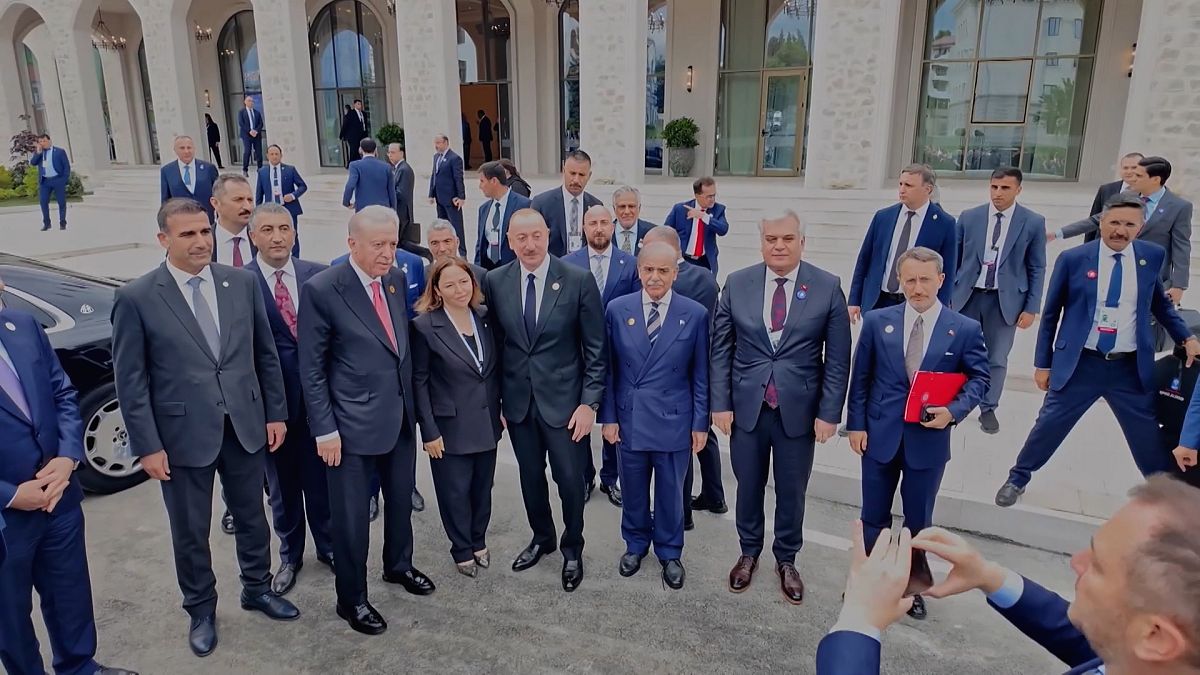

This week’s international developments shed light on several key areas of interest and cooperation among nations. From economic integration to historical reconciliation and strategic trade partnerships, countries are engaging in discussions to foster growth and collaboration.
The 17th Economic Cooperation Organization (ECO) summit in Khankendi, Azerbaijan, welcomed leaders from member states and invited countries, focusing on enhancing regional ties. Key agenda items included the expansion of trade, transport corridors, and overall regional integration. This gathering underscores the commitment of the ECO nations to work together, facilitating economic progress and fostering a sense of unity in the face of global challenges. The discussions aim at strengthening economic linkages and ensuring that the benefits of cooperation are shared among all participants.
Meanwhile, France has shown a notable signal of openness towards discussing reparations concerning its colonial history in Niger. Though France stops short of acknowledging direct responsibility, it has expressed willingness for dialogue and collaboration in provenance research and patrimonial cooperation. This gesture highlights an encouraging step towards healing historical wounds and restoring cultural artefacts to their rightful places. Such efforts can pave the way for a more comprehensive understanding and acknowledgment of past events, fostering reconciliation and mutual respect between nations.
In the realm of technological advancements, U.S.-based chipmaker Nvidia has received approval from the Trump administration to sell its advanced AI chips in China. CEO Jensen Huang announced the development, emphasizing its importance amidst an ever-deepening trade rivalry between the U.S. and China. This approval represents an opportunity for technology exchange and economic cooperation between the two nations, potentially influencing future dynamics in the global tech landscape. Such decisions not only impact the companies involved but also play a critical role in shaping international trade policies and relationships.
In the Asia-Pacific region, Australian Prime Minister Anthony Albanese engaged in talks with Chinese President Xi Jinping, advocating for unwavering cooperation despite global instabilities. The meeting emphasized the significance of maintaining stability and finding common ground on sensitive issues, such as economic collaborations and political concerns. The dialogue suggests a shared commitment to nurturing bilateral relations and addressing mutual interests, which could act as a buffer against broader geopolitical tensions affecting the two countries.
On another front, a prominent meeting at the United Nations, involving 30 nations, focused on addressing the longstanding Israeli-Palestinian conflict. The conference, described as a significant political development, aims at formulating political, economic, and legal measures to address the issues at hand. The initiative signifies a collective effort to find peaceful resolutions and promote stability in the region. The involvement of diverse countries accentuates the global community’s readiness to work towards a comprehensive and just solution, emphasizing the crucial nature of diplomacy and dialogue in resolving international conflicts.
In closing, recent global discussions and initiatives reveal a concerted effort by nations to address economic, historical, and geopolitical challenges through cooperation and dialogue. These developments underscore the importance of collaboration in confronting shared issues, highlighting a shared vision of progress and harmony among nations.
Source: {link}
